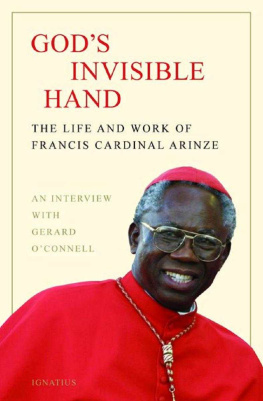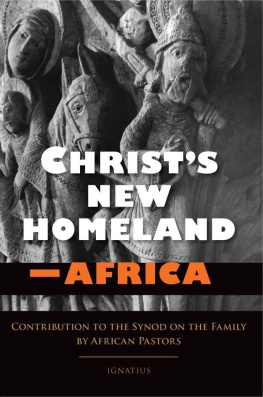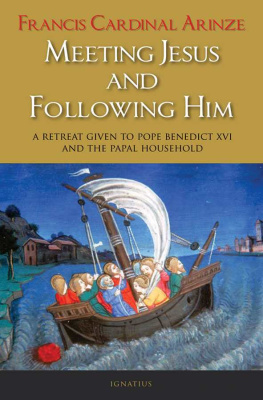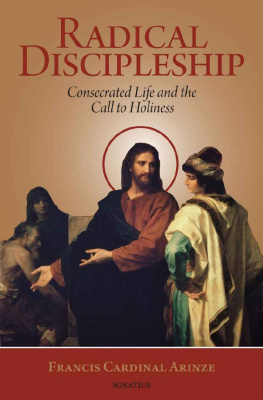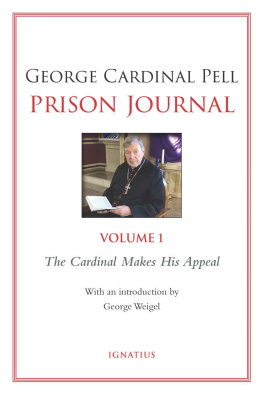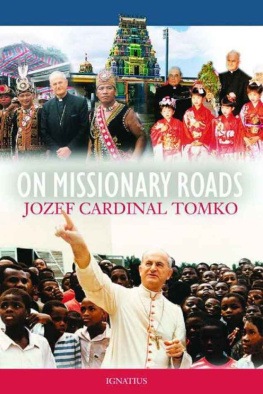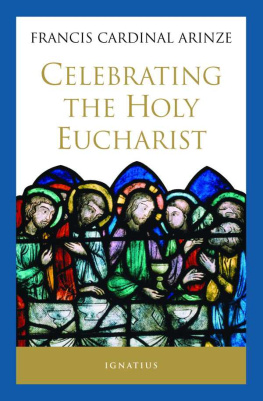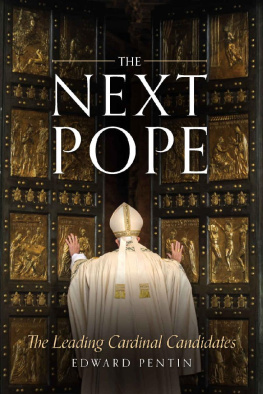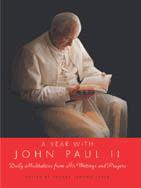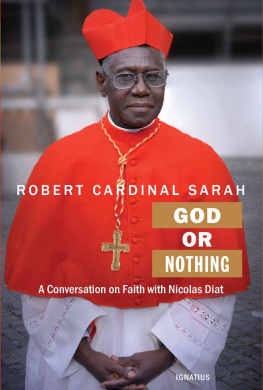GODS INVISIBLE HAND
GODS
INVISIBLE
HAND
The Life and Work of
Francis Cardinal Arinze
An Interview with
GERARD OCONNELL
IGNATIUS PRESS SAN FRANCISCO
Cover photograph:
Francis Cardinal Arinze
Pizzoli Alberto / CORBIS SYGMA
Cover design by Roxanne Mei Lum
2006 Ignatius Press, San Francisco
All rights reserved
ISBN 978-1-58617-135-3 (PB)
ISBN 1-58617-135-6
ISBN 978-1-68149-213-1 (E)
Library of Congress Control Number 2005933371
Printed in the United States of America
Contents
Introduction
The man who inspired the young Francis Arinze to become a priest was also, at least indirectly, the inspiration for this book. That man was Blessed Cyprian Michael Iwene Tansi, the first native-born Nigerian to be beatified by the Roman Catholic Church. It was the interview I did with Cardinal Arinze, immediately following Father Tansis beatification by Pope John Paul II, in Nigeria, March 1998, that gave me the idea of putting together this book of interviews.
That interview, which forms chapters 6, 7, and 12 of this book, is for me the most significant of a number of interviews I have had with Cardinal Arinze. Speaking in the days following the beatification, a moment of immense joy for the Nigerian cardinal, he recalled how he had begun to discern Divine Providenceor the Invisible Hand of God, as he sometimes refers to itin his own life. He spoke about his vocation as a priest, about being nominated bishop and cardinal, and about his life as the leading Catholic bishop in the area then known as Biafra during the Nigerian civil war.
In that interview, probably without fully realizing it, the cardinal revealed a great deal about what motivates him. He talked about matters at the heart of his life. With simplicity and without a trace of arrogance or self-promotion, he spoke about faith and prayer and about his abandonment to the will of God. He also revealed his profound veneration and admiration for Saint Francis of Assisi, who, along with the Blessed Tansi, occupies a special place in his own spirituality and outlook on the world.
I had originally planned to publish that three-and-a-half-hour interview as an article. However, it was far too long to present to most magazines or journals, so I put it aside while I pondered what to do with it. Two and a half years later, as the Jubilee Year 2000 was drawing to a close, I showed the cardinal the text. I proposed that he grant me a further, extended interview with the aim of allowing me to publish a collection of interviews as a small book. I already had, in fact, some unpublished interviews with Cardinal Arinze from earlier periods, including one recorded in May 1994, immediately after the Synod of Bishops for Africa. In that interview, the cardinal shared his own reflections in the immediate aftermath of that historic event in the life of the Church in the African continent. I decided to include those interviews in my text, as well. He agreed, but laid down a condition: Yes, as long as I am not the main focus of the book.
In preparation for the new interview, I drew up seven pages of questions and, toward the end of the Jubilee Year, I interviewed the cardinal on two separate occasions in December 2000. Two months later, in February 2001, I requested and was given a supplementary interview to fill in missing information.
These many interviews could not simply be placed in chronological order. The book would have lacked any internal logic or coherence. The only structure that seemed to work well was a semi-biographical one, built around key moments in the cardinals life. I therefore reorganized all the material on that basis and, in June 2001, presented the cardinal with the draft text. He was somewhat taken aback with the result. But the book is now focused on me, he said. I acknowledged that this was not what we had agreed, but explained why I had done it.
I have noticed, in the course of what are now many interviews and meetings, that Cardinal Arinze is not given to hasty decisions or pronouncements. He normally listens carefully and thinks about the matter raised (sometimes suggesting a second meeting to give time for due consideration), and then expresses his opinion. In this case too he thought carefully about my explanation before graciously accepting the text as I had reorganized it.
At the same time, he acceded to my request for a brief interview and shared his reflections on the visit of Pope John Paul II to Greece, Syria, and Malta in May 2001, a visit on which he had accompanied the Pope. He granted another in February 2002, to help me update the work. While I was putting the finishing touches to this text, Pope John Paul II sprung one of his many surprises. On October 1, 2002, the Holy Father appointed the cardinal to head one of the major Vatican departments, the Congregation for Divine Worship and the Discipline of the Sacraments. Naturally, I could not fail to record this important event in this book, and so I requested one final interview from the cardinal, which he graciously granted on December 11, 2002.
As the reader will understand, this is something of an accidental book. It did not set out to be, and does not pretend to be, a full biography. Nevertheless, in ways beyond my original intention, and certainly beyond the intention of the cardinal, it tells much of the story of Francis Arinzes life. Its value, I believe, is that it tells the story in the cardinals own words. It also offers a precious insight into the important work of dialogue between the Roman Catholic Church and major world religions. For eighteen years, together with his dedicated staff, Cardinal Arinze had been entrusted by the Pope to lead the Church in that dialogue.
By the end of 2002, the cardinal was fully engaged in another very important kind of dialogue, this time with those inside the Church regarding important questions linked to the celebration and worship of God in the liturgy. He is the only African cardinal ever to head this congregation and, indeed, is the only African heading a Vatican department today.
I have known Francis Cardinal Arinze since 1986, when I first interviewed him on the eve of the Synod on the Laity. A friend of mine in the Vatican suggested he would be a good man to interview. Hes open, said my friend. He is a man of deep faith, but he is also very approachable, down to earth, a man with a lot of common sense and a good communicator. He also has long and wide experience, including experience as a pastor of his people during one of Africas bloodiest civil wars. I phoned the cardinals office and, much to my surprise, he himself answered the phone. He accepted my request for an interview and proposed I come to his apartment in a building owned by the Vatican in the heart of Romes Trastevere.
I turned up at his apartment on a hot and humid afternoon and rang the doorbell. A man dressed in a cotton sweatshirt and dark trousers opened the door and warmly welcomed me. It was the cardinal. He was truly charming, humorous and relaxed, and he answered my every question.
Since that first meeting, I have interviewed him many times and spoken with him on numerous occasions. He has always been gracious and kind and never once refused to respond to my questions, letters, or requests for a meeting.
On a personal level, I have come to appreciate not only his deep spirituality but also his great humanity and kindness, especially when my mother was seriously ill. I had planned to go to Nigeria for the beatification of Father Tansi, but, three weeks before my departure date, my mother suffered a cerebral hemorrhage (a stroke). For a time it looked as though she would die. I flew to Ireland to be with her. Thankfully, she began to show signs of recovery. Knowing that I had planned to travel to Nigeria to report on the beatification, she told me, You go; I want you to go to Nigeria and be with the Holy Father. God will look after me; I will not die while you are away. I returned to Rome and told the cardinal about this situation. Do as your mother told you, he said. Go to Nigeria; God will take care of her, and I will pray to Father Tansi to intercede for her.
Next page
